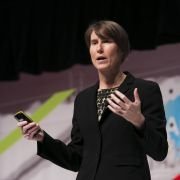“Glocalisation” for Health Professions Education
The Harvard Macy Institute Podcast Season 2, Episode 9 features Sawsan Abdel-Razig.
Health care and health professions education is increasingly global and interconnected. This has many benefits but risks ignoring important cultural and contextual differences in the settings where education is delivered. In this episode, Sawsan Abdel-Razig tells us about ‘glocalisation’ - combining the terms globalisation and localization to describe the adaptation of international standards to local needs and cultures. We explored this concept through her work in the United Arab Emirates, where she works as chair of medical education at the Cleveland Clinic Abu Dhabi.
Glocalisation involves adapting the domains of learning, the pedagogies, the faculty, and the systems to those that align with and serve local communities. By way of example, Sawsan has led the creation of a framework for medical professionalism in the UAE, with considerable overlap with accepted Western definitions, along with important differences.
We also discussed the opportunities for the ‘bidirectional’ influence of cultural adaptation, and suggest that the process of reflecting on differences can positively reshape some of our dominant Western perspectives.

Victoria Brazil, MD (Educators, ’05, Leaders ’07, Assessment ‘10) is Professor of Emergency Medicine and Director of Simulation at Bond University Faculty of Health Sciences and Medicine. Her research interests include podcasting and simulation, and she is co-producer of Simulcast - a podcast about health care simulation. Victoria can be followed on Twitter.
